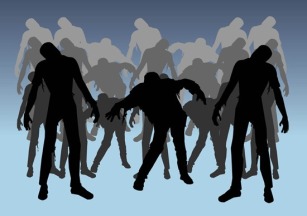
One of my favorite assignments to give to my college students is a 24-hour media fast. I ask them to refrain from using technology (their computers, cell phones and televisions) for 24 hours. I ask them to disconnect from their devices and connect to their inner selves. I ask them to put down social media and embrace social interaction. And then, I ask them to write about their experiences.
I have been giving the assignment for many years, and each year it gets harder for my students. For my student born in the digital age, the cell phone has become an extension of their bodies and their identities. The internet, with its infinite information and endless opportunities for distraction, is always available to them. They are in constant contact with friends and family, and yet they are oddly isolated, terrified of being alone.
I always find the papers deeply moving. For most of my students, the experience is difficult and eye opening. They come to appreciate the many ways that technology facilitates their lives and many of them begin to see the ways in which the same technology may be a hindrance to a more meaningful life.
Freed from their cell phones, they notice their surroundings more. They have to find ways of entertaining themselves without a screen. They have meaningful conversations with the people in front of them and discover that it is frustrating to have a conversation with someone who is simultaneously texting other people. They learn that talking to a stranger in line at the market need not be terrifying and that there are many different sounds in a city- not just the wailing of sirens.
Beyond the noises of the city, they begin to hear other things. They experience silence. And it scares them. Many of my students discover that when they are silent, they can hear their own thoughts and get in touch with their own emotions. They write to me about feeling overwhelmed by sadness and loneliness and fighting the urge to turn on their devices to distract them from the pain.
But for those students who are able to resist the pull of technological morphine, they discover something important. They find that they can make it through the pain. They discover catharsis in feeling something deeply and authentically. They discover that the pain passes and that happiness and calm follow. They get in touch with their own humanity.
Despite gaining insight from the experience, my students tell me they will never really be able to attain those feelings again. Without the outside pressure of the assignment, they doubt their own ability to go technology free. They are struck by the realization that even if they chose to limit their own use of media, they would still find themselves immersed in a culture that demands electronic inter-connectivity. They know that their friends will all be texting and updating status reports during conversations. My assignment opens them up to new insights, and yet they feel powerless to do anything with their new-found knowledge.
Completely unplugging may not be an option, but I do offer my students some suggestions.
- Set aside time every day to be media free. During this time, avoid multi-tasking. Read a book. Sit quietly and think or meditate. Go for a walk. For 30 minutes, be fully present in an endeavor.
- Make a deal with friends or family to turn off cell phones during meals. Use meal times to interact and converse with the people in front of you. You can text and respond to social media and email later.
- Figure out which apps you use the most on your phone (usually social media such as Facebook or Instagram), and move them into a separate folder. By making it slightly more difficult to access the apps, you will be less likely to mindlessly turn to them.
- Turn off notifications on some of your applications. We are inundated by the sounds of our phones- from social media to texts, our phone are always buzzing, dinging and vibrating. We become like Pavlov’s dogs, conditioned to respond to the sound of the phone. Turn off notifications and limit the number of times you check your applications a day.
Gone are the days when we could imagine a life completely media free. To live in the modern economy requires an engagement with technology. However, we can set the terms by which we engage. We can decide to use our tools and not be used by them.
If my students (and others) are able to unplug from their devices for just a little time each day, they will find more room in their lives. Less concerned with wireless connectivity, they may actually find connection.

